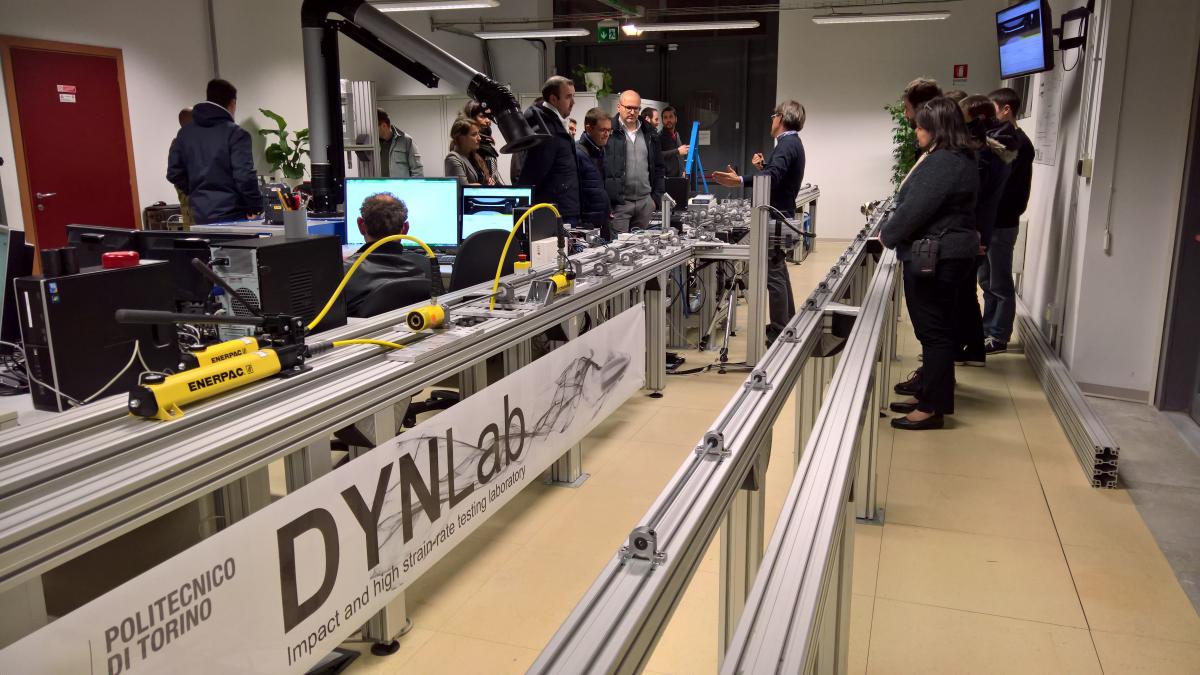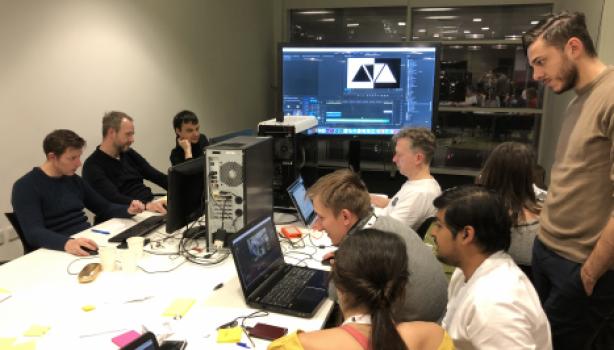The ARIES project organised its first workshop for Work Package 17 (WP17) “PowerMat” in Turin, Italy over 27-28 October 2017. The event hosted 30 participants from several Laboratories, Universities, and small companies.
The main objective of WP17 is the development and investigation (through both simulations and experiments) of novel materials for extreme thermal management related to particle accelerators and other challenging applications.
Many lively discussions and fruitful exchanges took place during the five sessions of the workshop. Each session was dedicated to a specific task of WP17, with special input regarding ARIES WP14 “Promoting Innovation”, which operates synergistically with PowerMat to provide material specimens and samples to be characterized and tested.
The main goal of the workshop was the presentation and discussion of results related to the latest developments of novel and advanced materials based on carbon and diamond. Besides excellent thermomechanical properties, these materials are required to resist the long-term effects of radiation, in the harsh accelerator environment. In this respect, material characterization campaigns are performed both on pristine and irradiated samples.
The first session of talks considered the investigation of metal carbide-reinforced graphite and fibre-reinforced graphite, with specific regard to their thermomechanical, microstructural and ultra-high vacuum characteristics. These materials are used in Collimators and Beam Intercepting Devices (BID), and must be optimized for the challenges of future high-energy particle accelerators.
The workshop also dedicated talks to the discussion of dynamic tests of advanced materials, with specific attention to experiments performed at the CERN HiRadMat facility. Several experiments were presented, including preliminary results from the MultiMat experiment, which took place in October 2017. The reusable, rotatable barrel hosted in the test bench allowed the testing of 18 different materials, ranging from very low-density carbon foams to high-density tungsten alloy, and three thin-film coatings under the most intense and energetic proton pulses available from CERN Super Proton Synchrotron (SPS).
The target stations were equipped with strain gauges, pressure sensors and thermal probes in order to acquire the dynamic response of the materials and benchmark the numerical results of the simulations. The experiment was concluded with more than 2·1015 protons delivered on target. All the carbon-based materials survived the maximum intensities, with energy densities exceeding those expected in the HL-LHC. The online instrumentations worked very reliably, providing a wealth of data for post-processing. The first analyses indicate a good agreement with the numerical and analytical predictions.
Workshop attendees also reviewed recent results of radiation damage studies from GSI, CERN and Polimi; and to agree on a plan for future simulations and experiments at various facilities in Europe and USA.
Importantly, PowerMat aims to explore the possible societal applications of novel materials in challenging domains, such as advanced engineering, medical imaging, quantum computing, energy efficiency, aerospace, and thermal management. In this context, researchers discussed the development of diamond-reinforced composites for luminescence screens, as well as optimization paths and experiments.

The visit of the DYNLab in Politecnico of Turin (Image: M. Scapin/Polito)
Attendees were also able to visit Polito’s DYNLab, a comprehensive facility for material testing in quasi-static and dynamic conditions, which will characterize materials for PowerMat. In addition, the programme featured a visit to Polito’s Additive Manufacturing facilities and invited talks on several inspiring topics, including Advanced Joining Technologies.
The presentations and interaction during these two days allowed participants to plan a large number of future activities as well as strengthen or launch new collaborations. Partners will report on the progress of their activities at the next WP17 meeting, to be held at the ARIES 2018 Annual Meeting in Riga, Latvia.
Special thanks go to Lorenzo Peroni and Martina Scapin at Polito, for their organisation of an inspiring venue with a unique context and atmosphere.
***
Header image: Participants of the Workshop of ARIES WP17 PowerMat, 27-28th November 2017, Politecnico of Turin, Italy (Image: M. Scapin/Polito)


